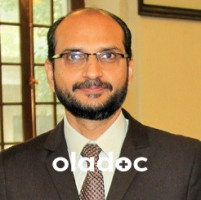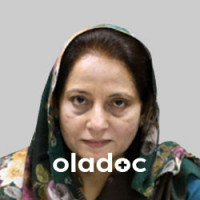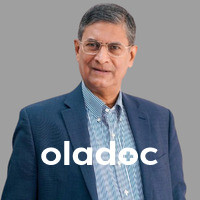The COVID-19 pandemic is nowhere near its end; the number of cases is still increasing, the graph is on a steady incline, the peak is still not in sight. Before we could recover the damage rendered by this virus, its secondary complications have started sprouting up.
One such disease that is taking a toll on the healthcare staff and people is the Kawasaki disease. The Institute of Child Health has reported 3 cases of Kawasaki virus in Lahore, whereas the hospitals in the rest of the country have also reported varying numbers of cases of the virus.
The most alarming thing perhaps with the cases of the Kawasaki virus in Lahore is the fact that the doctors have been caught off guard. The lack of research about this secondary complication makes these cases are a cause for concern.
Table of Contents
What is Kawasaki Disease (KD)?
Named after the Japanese scientist who discovered the disease in the 1960s, Kawasaki Disease is a condition that plagues children. It is characterized by the inflammation in the blood vessels, including arteries, capillaries, and veins. It also affects the lymph nodes. KD is one of the major causes of heart disease in children.
If timely medical aid is provided to the children, recovery with no complications is possible. However, the lack of proper treatment well within time can lead to lifelong heart problems like an aneurysm, arrhythmias, heart valve malfunctions, etc., and even death in severe cases.
The causes of KD are unknown, but it’s is more common in Asian children.
What are the symptoms of Kawasaki Disease (KD)?
Kawasaki disease has two phases; early and later, and the symptoms vary accordingly. In the earlier stages of KD, symptoms that can be observed include; fever that goes on for 5 days, rash on the abdominal region, limbs and groin, swelling of the lymph nodes, lips and extremities, bloodshot eyes, soles of the feet turning purple, cracking of the lips, etc.
However, the situation becomes more severe in the later phases, with the skin on the limbs peeling off, arthritis-like joint pains, digestive issues like vomiting and diarrhea, hearing impairment, etc.
Children under the age of 5 do not follow these textbook symptoms in entirety, and thus run the danger of being ignored. However, this is very dangerous as they are more at risk of developing heart diseases.
Coronavirus and the children
The number of children suffering from coronavirus has been smaller in comparison to adult cases. Only a small number of children have been critically affected by the virus. However, those already suffering from serious and terminal conditions like cancer, etc. are at great risk of the virus, with death being a likely outcome for many of them.
Most of the children suffering from the virus experienced mild symptoms of the disease. Others have been asymptomatic. However, 39% of the cases had more worrisome symptoms like pneumonia or other changes in the lungs.
However, the good news of children being relatively safe from the virus has been short-lived, as secondary complications from the virus are manifesting globally now.
Kawasaki Disease in the context of Covid-19
Since the exact causes of Kawasaki disease are unknown, hence its connection with coronavirus is not well understood yet. Other similar diseases like Multisystem Inflammatory Syndrome in children (MIS-C) are being observed in the children as well in relation to coronavirus. The conclusion thus far has been that these diseases are connected to the COVID-19 causing virus.
Both these diseases have similar manifestations and symptoms like red rashes, digestive issues like vomiting, etc., swelling in the limbs, etc. Timely intervention can help reduce the inflammation and decrease the damage to the organs in both these cases.
Moreover, many of the children who suffer from this disease present milder forms of symptoms of coronavirus or are asymptomatic altogether. In many cases, even if they did not test positive for COVID-19 per se, they were definitely exposed to the virus that resulted in these secondary complications.
According to Dr. Prof. Sadiq, KD is a result of the post-viral complication of COVID-19 and has a probability of striking 1 out of every 1000 children. Considering that Pakistan has ever-increasing cases of the disease, and has yet to hit the peak, this news is rather somber.
How to go about the treatment?
With the emerging cases, doctors of the country, especially those pertaining to the field of pediatrics, are now becoming aware of the probability of the virus in the children. This is important to hasten the process of diagnosis, which therefore will be important in ensuring children are not stricken with the permanent disease.
Also, as the time lapse between the onset of the fever (induced by KD) and the treatment increases, the child’s responsiveness to the disease decreases. This in turn can lead to permanent damage and disease in the child.
However, both Kawasaki disease and MIS-C can be managed well with timely medical care. Injections of antibodies are given in KD to help the patients fight the infection. They are also given aspirin to counter the inflammation and bring down the fever. Depending on the condition of the child, the aspirin is monitored accordingly.
Certain children may also be given steroids to prevent coronary complications. Likewise, is the treatment for MIS-C. Some children may need to be put on a ventilator for their condition to stabilize, however, overall, timely treatment is not very complicated and yields promising results.
The cases of the Kawasaki virus in Lahore have reminded yet again to the world the sheer amount of damage done to it by the COVID-19 pandemic.
If your child is suffering from any symptoms of Kawasaki or coronavirus, consult a child specialist as soon as possible. You can book an appointment with a top child specialist in Karachi, Lahore, and Islamabad via oladoc.com or by calling at 042-38900939.













